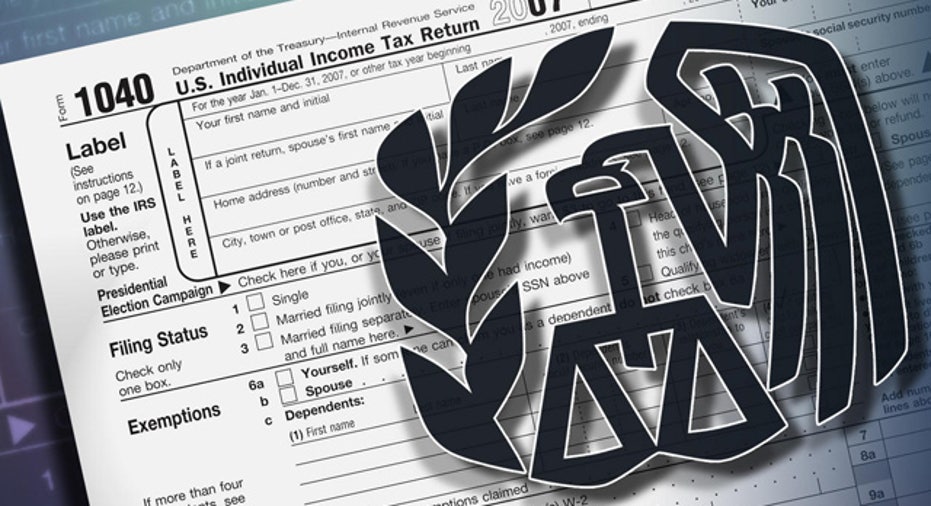Pfizer Inversion Plan Puts Tax Code Under Microscope

The U.S. corporate tax code has come under far more scrutiny than Pfizer in the wake of the giant drug maker’s announcement last week that it hopes to avoid billions of dollars in federal taxes by moving its legal address to London.
“The quotes we’ve seen from the politicians so far don’t in any way seem to be criticizing Pfizer. They’re laying the blame on the tax system that Pfizer has to work with,” said corporate tax expert Robert Willens.
“Historically the company itself got blamed,” Willens added. “There’s been a shift in that dynamic. Now the system seems to be the culprit and that’s got to be something (Pfizer) is breathing a sigh of relief over.”
While relocating a company’s legal address outside the U.S. for tax purposes (known as an inversion) is hardly a new phenomenon, Pfizer is by far the largest and most high-profile company to ever attempt the move. The companies say the comparatively-high U.S. corporate tax rate leaves them at a competitive disadvantage to their overseas competitors.
Paying a lower tax rate, they say, helps the company reinvest in itself and ultimately benefits shareholders.
No Public Backlash Against Pfizer
The lack of public or political backlash against Pfizer (NYSE:PFE), the largest U.S. drug maker with a market cap of $188 billion and 2013 sales of nearly $52 billion, means other major U.S. companies are sure to follow suit.
“I would say so very definitely,” said Willens. “We’ve seen plenty already and we’re going to see a lot more.”
By Willens’ estimate there have been about 50 inversions by U.S. companies over the past few decades, with the pace picking up considerably in recent years.
The scenario for such moves was very different in 2002 as the U.S. was still raw from the memory of the Sept. 11, 2001, terrorist attacks and patriotism ran high. Tool maker Stanley Works -- now Stanley Black & Decker (NYSE:SWK) -- whose roots in the U.S. date back to the mid-19th Century, abruptly changed its mind about relocating its corporate address to Bermuda after a noisy public backlash.
"Now the system seems to be the culprit and that’s got to be something (Pfizer) is breathing a sigh of relief over."
“Stanley Works has the potential to become the poster child for public outrage about overseas moves to avoid taxes,” Connecticut’s then-Attorney General Richard Blumenthal said at the time. “It may become a symbol for a much broader public reaction and for congressional action as well.”
No such public outcry has emerged following Pfizer’s announcement that it could reduce its federal corporate tax rate from 35% in the U.S., the highest corporate rate in the world, to 21% in Britain by moving its corporate address to London.
Instead, the startling news that an iconic U.S. company is willing to trade in its U.S. citizenship to cut its corporate tax rate has sparked a renewed debate over whether Congress should consider revamping the federal corporate tax code. Past efforts to remedy moves offshore by U.S. companies have focused on making the tax dodge more difficult rather than on reducing their domestic tax burdens. One obstacle erected after a spate of inversions a decade ago required around 20% of the relocated company's stockholders to be foreign.
Ball is in Congress’ Court
Earlier this year, the Obama administration tucked a measure into a budget bill that would have made the relocation process more difficult for U.S. companies, but the measure never got off the ground in Congress.
John Koskinen, commissioner of the Internal Revenue Service, told reporters last week that his agency’s hands are tied if a company seeking to leave the U.S. for tax purposes does so within the regulatory framework established by the IRS.
“We’ve done, I think, probably all we can within the statute. We try to make sure people are within the bounds, but if they’re within the bounds, if they play according to the rules, then they have a right to do that,” Koskinen said.
In other words, the ball is in Congress’ court.
Following Pfizer’s announcement, which capped a string of recent inversions by other high-profile companies including banana distributor Chiquita Brands (NYSE:CQB) and advertising giant Omnicom Group (NYSE:OMC), the discussion has shifted away from efforts to block the moves to addressing the problem head on by lowering the U.S. corporate tax rate.
Dennis Kozlowski, the former head of Tyco International who in 1997 spearheaded that company’s legal move to Bermuda, said Pfizer’s announcement should serve as a wakeup call to Congress.
“I think it should grab Washington’s attention, but they’ve got to have the right emphasis: let’s roll up our sleeves and take a look at our tax code and see what we can do to preclude companies from relocating off-shore instead of trying to hold them hostage,” he said.
Part of a Broader Strategy
In sum, the issue can only be addressed, according to Kozlowski, if the U.S. government “would seriously take a look at the tax code and attempt to make us more competitive on a global basis.”
But Kozlowski cautioned companies against taking the step purely for tax purposes. Tax policies in foreign countries can be unpredictable, for example, and there can be “unintended consequences” for companies that fail to formulate a broader strategy.
He speculated that one reason so much recent attention has been garnered by inversions is that some companies are touting the tax benefits in an effort to mask other potential flaws in their plans.
“I don’t think it makes sense for companies to move offshore driven strictly by U.S. tax policy. It should make sense economically before you consider the taxes. It should be accretive to shareholders,” he said. “If the commercial enterprise makes sense, it should be an ancillary benefit of an overall strategy, but not the driving force.”



















